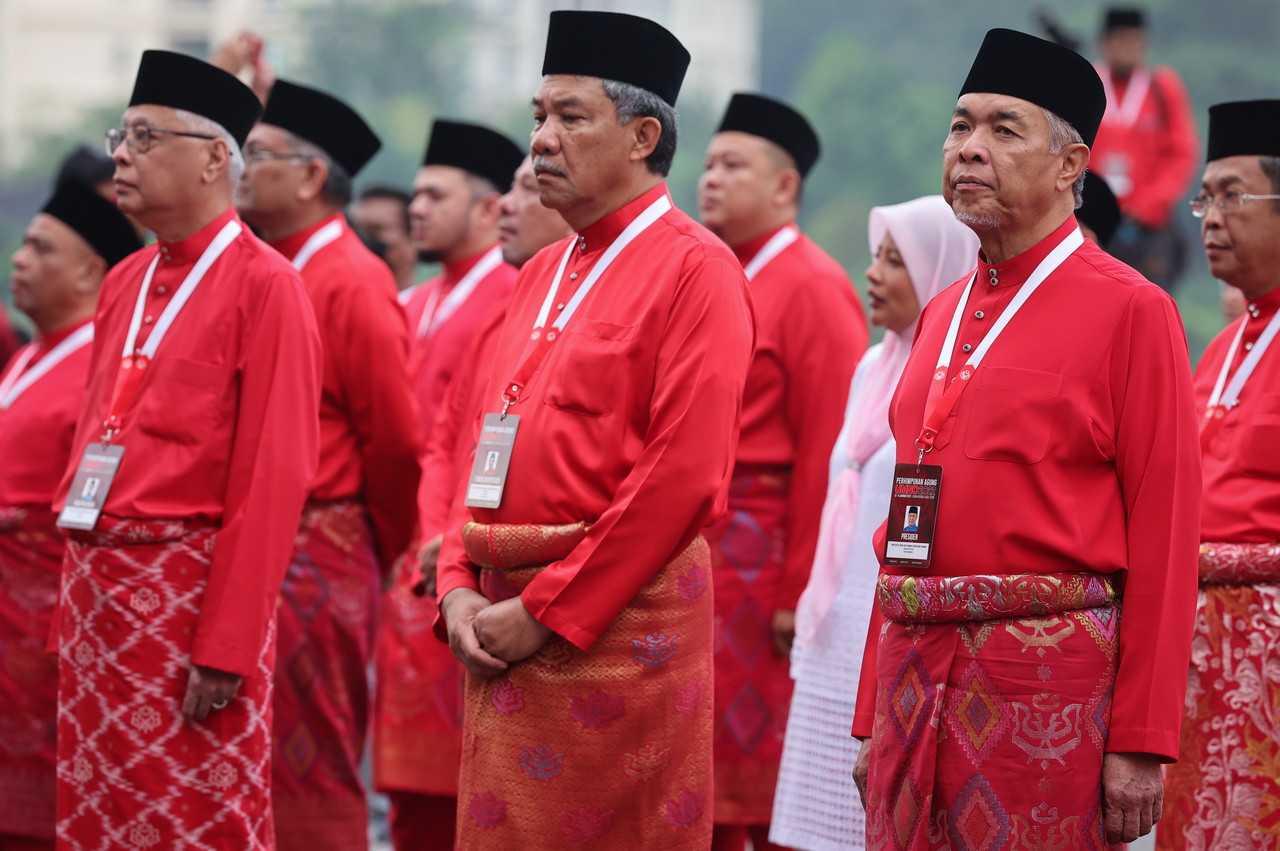Ex-PM Ismail decries double standards by Umno leadership
He says despite being a prime minister from Umno, he was a target of attacks by his own party leaders.
Just In
Umno vice-president Ismail Sabri Yaakob has launched a scathing attack on the party leadership over what he says were double standards in the way they treated him when he was the prime minister for 16 months before last year's general election.
In comments believed to be directed at Umno president Ahmad Zahid Hamidi, Ismail compared Umno's representation in the Cabinet he led with the current one led by Anwar Ibrahim.
He said during his time at the head of the coalition government comprising Barisan Nasional (BN), Perikatan Nasional (PN) and Gabungan Parti Sarawak (GPS), ministers from Umno made up almost half of the Cabinet despite the party having only 38 MPs at the time.
In contrast, he said, only six Cabinet slots were given to Umno in the current coalition government.
"They say this is a big achievement for us. There are six Umno ministers, including one deputy prime minister. Whereas under me, there were 14 BN ministers, including the prime minister.
"Today, no one in the Umno leadership criticises the government. I used to be heavily criticised. But today, the leaders of other parties are praised so highly," Ismail told Utusan Malaysia in a recent interview.
He also questioned the silence of the Umno leadership even when the current government did something wrong.
"Just look at all the praises now. They (Umno leaders) have been defending the unreasonable actions sometimes taken by the government.
"I had expected that they would defend me – whenever I was criticised too harshly, they could have shielded me. But they themselves joined in the attacks against me," he added.
Ismail likewise recalled how the media was used by Umno leaders to attack fellow party comrades who served as members of his Cabinet.
"I was pressured by the Umno leadership, as if I was not from Umno. When something happened, the pressure on me was too strong.
"This I can say: why couldn't they use the proper channels to relate the party's views and instructions? The Supreme Council held meetings every month, they could have told me what to do. There was no need to lambast me in the newspapers. In the media, I was openly attacked," he said.
Ismail became the prime minister in August 2021 following a string of defections engineered by Zahid and former leader Najib Razak which forced then prime minister Muhyiddin Yassin to step down.
Ismail had managed to trump Anwar, the Pakatan Harapan candidate for prime minister, after receiving the backing from a majority MPs including some 50 from PN and 18 from GPS.
But the months that followed saw Ismail coming under intense pressure from Umno leaders, especially party president Zahid and his deputy Mohamad Hasan, who wanted him to dissolve Parliament without delay to ride on what they believed was the return of BN's popularity.
After months of resistance, Ismail dissolved Parliament to pave the way for the 15th general election in November last year, ending his tenure as the shortest serving prime minister.
He then joined several other Umno leaders in resisting Zahid's plan to back Anwar as prime minister.
He was also among the top Umno leaders who opposed Zahid's recent move to purge the party of several prominent leaders and members.
In the same interview with Utusan Malaysia, Ismail predicted a repeat of Umno's losses in upcoming state elections in Selangor, Negeri Sembilan, Penang, Kedah, Kelantan and Terengganu.
"We may face the same problem as we did in the recent election, when we were ultimately rejected by the people, especially the youth and professionals because of (our) attitude," he said.
"If during the general election they rejected us, there is no reason why they would change their minds at the state elections."
Subscribe to our newsletter
To be updated with all the latest news and analyses daily.
